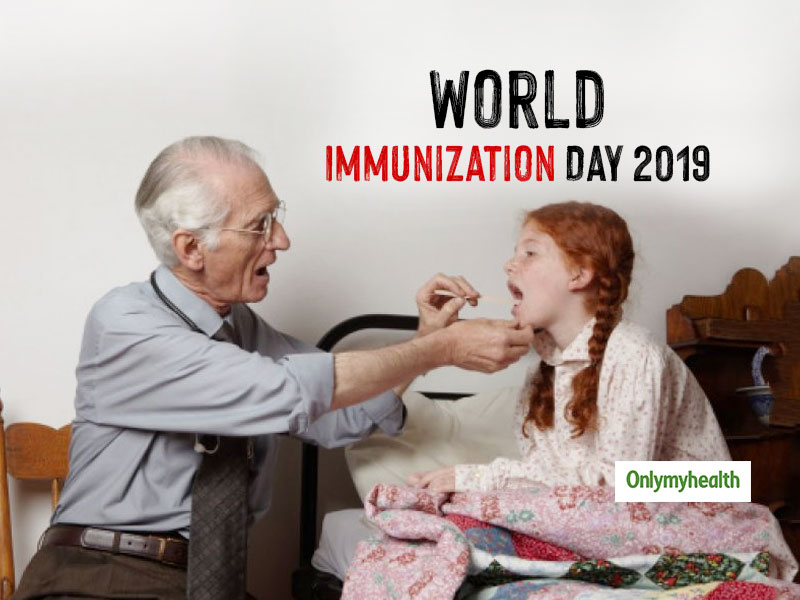
Every year, to spread awareness about the importance of timely immunization, 10th of November is celebrated as ‘World Immunization Day’. The observance of this day aims at highlighting the vaccination procedure as a low-tech, cost-effective and a high impact solution to prevent various infectious diseases and illnesses among the population of all age groups. As per the statistics of WHO, immunization has been able to control and even eliminate several life-threatening conditions such as diphtheria, tetanus, polio, measles, pneumonia and rotavirus diarrhoea. It has been estimated that immunization has helped the world in preventing 2 to 3 million deaths every year.
Table of Content:-
What is Immunization?
A person is made immune to an infectious disease by the process immunization. It is typically done through the administration of a vaccine. Immunization is achieved by stimulating the body's immune system to protect the person against subsequent infection or disease.
Type of Immunization

- Immunization can be classified into types - Active Immunization and Passive Immunization. Active Immunization is the one in which a vaccine is introduced in the body.
- The vaccine makes the immune system produce antibodies against a particular disease. Whereas, in Passive Immunization, the antibodies are prepared outside the body, and then these antibodies are injected into the human body to fight infectious disease agent or toxin.
- Passive Immunization is effective in handling cases that require immediate action. However, the protection provided by this type of immunization is short-lived.
How do vaccines work?
Also Read: Shingles Pain: Causes, Symptoms, Diagnosis and Treatment
Vaccines work by mimicking the disease-causing organism and thereby creating an immune response in the body. The antibodies thus produced, remain in the memory cells of the body, and if a real infection occurs, the body is ready with the defence mechanism.

Immunization in India
- India accounts for the most significant number of births all around the globe. Keeping this in mind, the Government of India has launched several immunization programmes.
- One of the vital plans is the ‘Universal Immunization Program (UIP)’. Under this programme, the government provides free vaccines against vaccine-preventable diseases. The programme covered vaccines against several diseases including pertussis, tetanus, diphtheria, polio, measles, hepatitis B, meningitis and pneumonia, Japanese encephalitis (JE) in JE endemic districts, rotavirus, IPV, and measles-rubella (MR).
- As per the statistics, the programme performed quite well from 1985 to 1995. The coverage levels for various vaccines reached 70-85%, and the incidences of various vaccine-preventable diseases declined rapidly all around the nation.
- However, after having great success in the first decade, there has been a substantial decline (15 to 20%) in the coverage of different vaccines. During NFHS (National Family Health Survey) I, II and III, it was experienced that the coverage levels were lower as much as 15-40% compared to that of the reported levels by UIP.
Also Read: Important Vaccines During Pregnancy

Wrapping it up
- Therefore, it is essential to recognize immunization as one of the core components of the human right to health.
- Also, it is the masses that will have to understand that vaccines are essential to safeguard them from a life-threatening disease, and therefore, no dose has to be ever skipped.
(Inputs By Dr Sophia Jeremiah, Consultant – Medical Team at Docprime.com)
Read more articles on Other Diseases
How we keep this article up to date:
We work with experts and keep a close eye on the latest in health and wellness. Whenever there is a new research or helpful information, we update our articles with accurate and useful advice.
Current Version